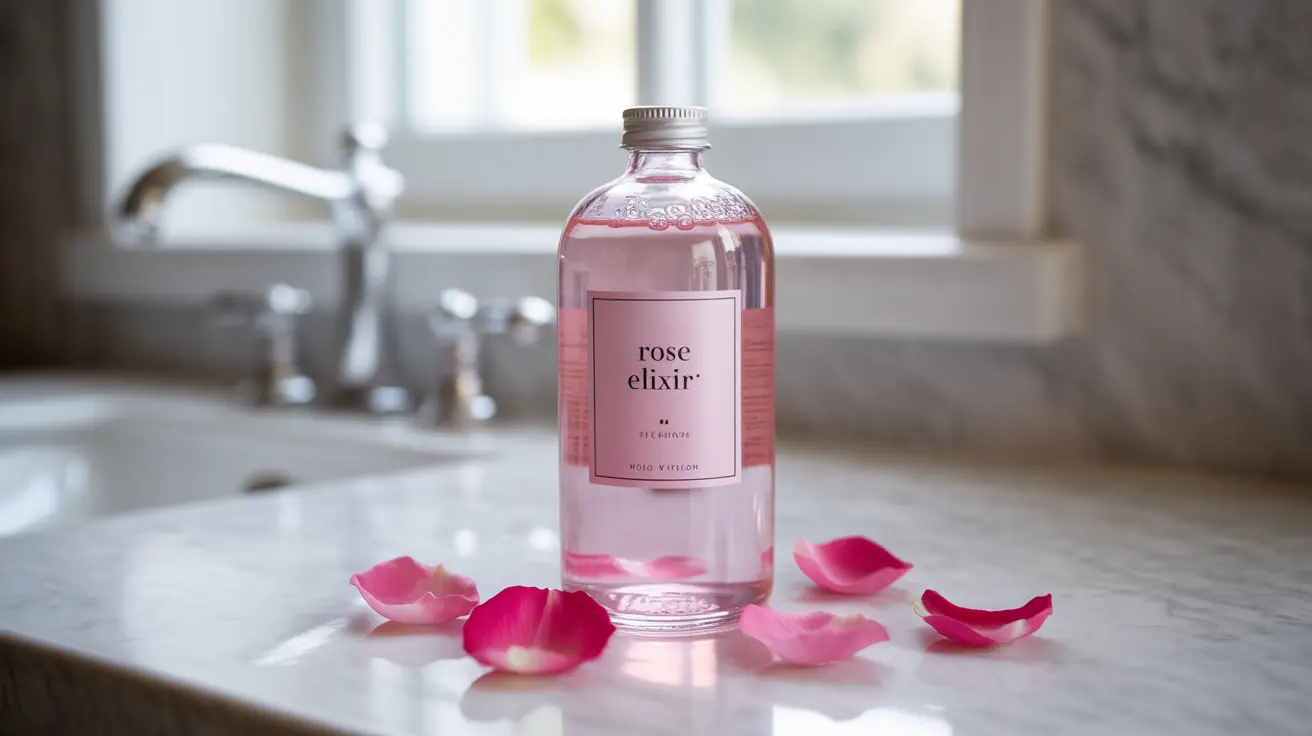For centuries, rose water has been celebrated in traditional medicine and skincare practices for its potential skin-healing properties. As more people seek natural alternatives for acne treatment, rose water has emerged as a promising option. But does rose water help acne? Let's explore the science behind this natural remedy and its effectiveness in managing breakouts.
Understanding Rose Water and Its Properties
Rose water is created through the steam distillation of rose petals, resulting in a liquid rich in natural compounds including antioxidants, vitamins, and tannins. These components contribute to its potential anti-inflammatory and antibacterial properties, which may benefit those struggling with acne.
Key Benefits for Skin Health
Rose water offers several properties that may help improve acne-prone skin:
- Natural anti-inflammatory effects
- Gentle pH balancing properties
- Antioxidant protection
- Mild antibacterial activity
- Soothing and calming effects
How Rose Water Fights Acne
Rose water's effectiveness in treating acne stems from multiple mechanisms. Its natural anti-inflammatory properties can help reduce redness and swelling associated with active breakouts. Additionally, its ability to balance skin pH may help create an environment less conducive to acne-causing bacteria.
Anti-inflammatory Action
The anti-inflammatory compounds in rose water can help calm irritated skin and reduce the appearance of angry, red pimples. This makes it particularly beneficial for inflammatory acne types, such as papules and pustules.
Using Rose Water in Your Skincare Routine
To maximize rose water's benefits for acne-prone skin, proper application is crucial:
- Use as a gentle toner after cleansing
- Apply with a cotton pad or spray directly
- Layer under moisturizer for added hydration
- Use twice daily for best results
Best Practices for Application
For optimal results, incorporate rose water into your skincare routine consistently. Always perform a patch test before full application, and use pure, high-quality rose water without added fragrances or preservatives.
Combining Rose Water with Other Acne Treatments
Rose water can complement existing acne treatments by providing additional soothing benefits. It can be safely used alongside most active ingredients, though it's always wise to consult with a dermatologist about your specific skincare routine.
Frequently Asked Questions
Does rose water help reduce acne and inflammation on the skin?
Yes, rose water can help reduce acne and inflammation due to its natural anti-inflammatory and antibacterial properties. It helps calm irritated skin and may reduce redness associated with breakouts.
How effective is rose water compared to other acne treatments?
While rose water is generally milder than conventional acne treatments, it works well as a complementary treatment. It's particularly effective for soothing irritated skin and maintaining skin balance, though severe acne may require additional medical treatment.
Can rose water lighten acne scars and improve skin tone?
Rose water may help fade post-acne marks over time through its antioxidant properties and ability to promote skin cell turnover. However, results vary, and significant scarring may require more targeted treatments.
Is rose water safe for all skin types, including sensitive or acne-prone skin?
Pure rose water is generally safe for all skin types, including sensitive and acne-prone skin. Its gentle, natural properties make it unlikely to cause irritation, though individual reactions can vary.
How should rose water be used in a daily skincare routine for acne?
Incorporate rose water by using it as a toner after cleansing, morning and night. Apply it with a cotton pad or spray bottle, followed by your regular moisturizer and treatments. For best results, use consistently as part of your daily routine.
While rose water isn't a miracle cure for acne, its natural properties make it a valuable addition to any skincare routine focused on managing breakouts. When used consistently and properly, it can contribute to clearer, calmer skin as part of a comprehensive skincare approach.




